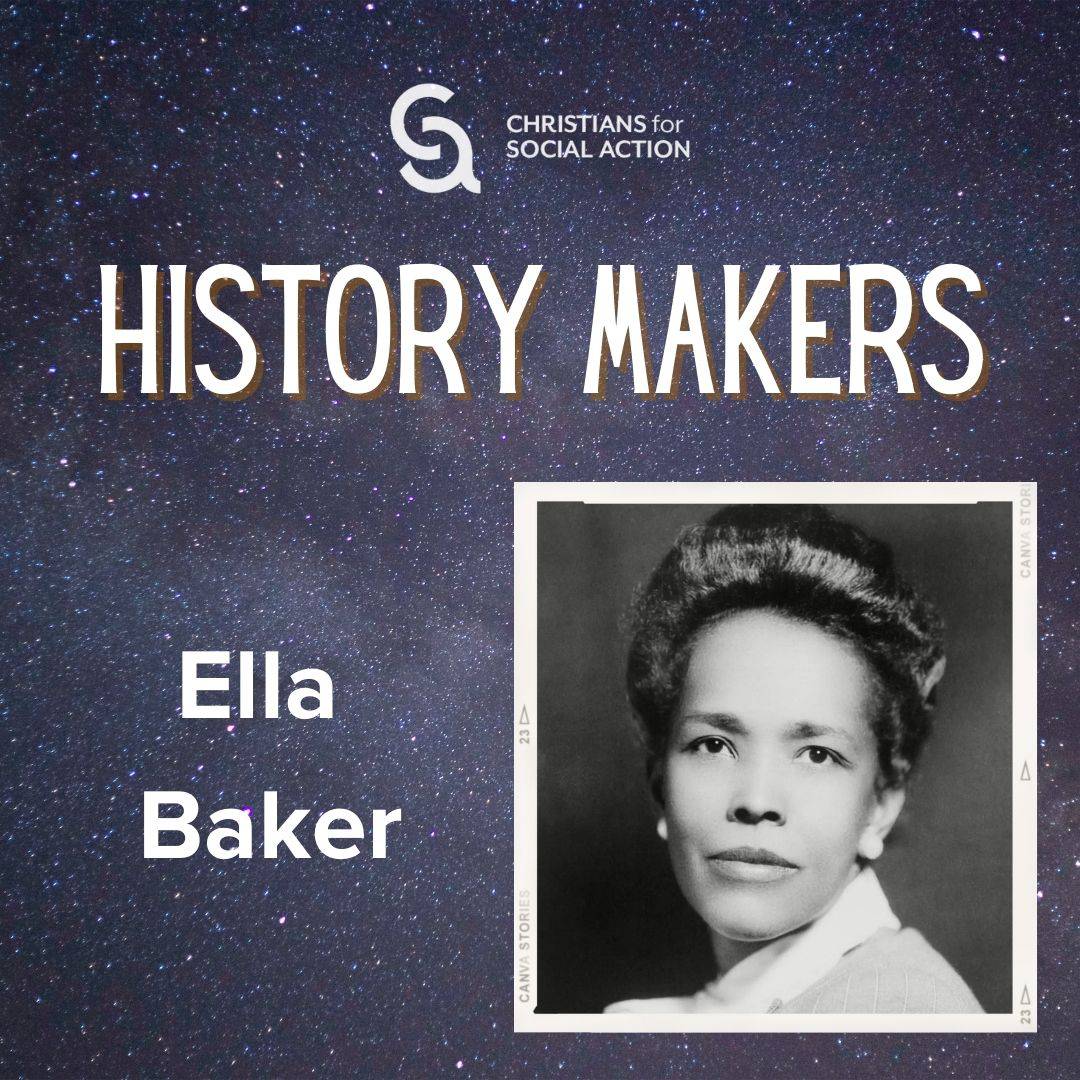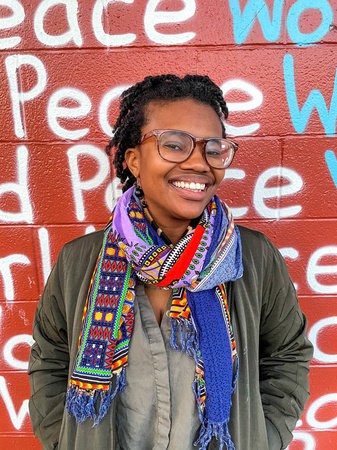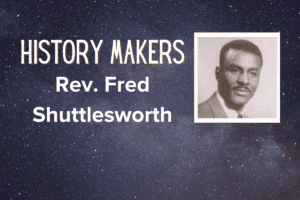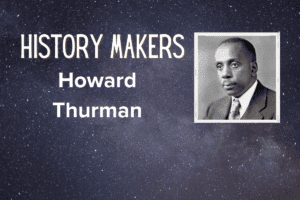 In celebration of Black History Month, we talked with four current Black leaders who are creating legacies of justice and shaping our lived history today, asking them, “Who from Black history inspires you?” This series invites you to journey with us as we profile the historical leaders from Black History whose legacies continue to inspire contemporary change makers. Today’s leader is Ella Baker.
In celebration of Black History Month, we talked with four current Black leaders who are creating legacies of justice and shaping our lived history today, asking them, “Who from Black history inspires you?” This series invites you to journey with us as we profile the historical leaders from Black History whose legacies continue to inspire contemporary change makers. Today’s leader is Ella Baker.
***
“Until the killing of black men, black mothers’ sons, becomes as important to the rest of the country as the killing of a white mother’s sons, we who believe in freedom cannot rest.” – Ella Baker
About Ella Baker:
Ella Josephine Baker was born in 1903, in Norfolk, Virginia. Growing up in the segregated South, she witnessed firsthand the injustices faced by African Americans. Her grandmother, who was formerly enslaved, instilled in her a strong sense of pride and resilience. The Great Depression also imprinted values like what it means to live in and through suffering.
Baker attended Shaw University in Raleigh, North Carolina, where she became involved in student activism and joined the NAACP. After graduating in 1927 as class valedictorian, she moved to Harlem and began to work with the Young Negroes’ Cooperative League and the Workers’ Education Project, honing her skills as a community organizer.
Baker’s activism came to the forefront during the civil rights movement of the 1950s and 1960s. She played a crucial role in organizations like the Southern Christian Leadership Conference (SCLC) and the Student Nonviolent Coordinating Committee (SNCC). Baker emphasized the importance of grassroots organizing and encouraged ordinary people to take leadership roles in their communities. She urged people who found a cause in their community to focus on it as a first step and gather together others who care.
“What are the things taking place in our community which we should like to see changed? Take that one thing—getting a new school building; registering people to vote; getting bus transportation—take that one thing and work on it and get it done.”
To students, Ella Baker was known as fundi, Swahili for a teacher who oversees apprentices. Baker’s role in the civil rights movement of the 20th century was to integrate justice in everyday life and multiply the movement by training others. Her commitment to grassroots organizing and empowering ordinary people catalyzed significant social change.
Baker believed in the power of collective action. She championed the idea that meaningful change comes from the bottom up, not the top down. Baker empowered marginalized communities to advocate for themselves and challenge systems of oppression. Through her work, she helped ordinary people find their voices and become agents of change in their own right. The importance of this value led her to become disillusioned with the NAACP’s leadership, which was comprised mainly of business and professional men.
Once she left her position at the NAACP in 1946, she turned to volunteering in protests for school desegregation in New York and supporting bus boycotts in the south. At the core of Baker’s activism was her belief in participatory democracy. She envisioned a society where everyone had a voice in the decisions that affected their lives. Baker rejected hierarchical leadership structures and instead advocated for decentralized, inclusive forms of organizing. This nurtured the vision for the Southern Christian Leadership Conference (SCLC) in conjunction with Bayard Rustin and Stanley Levinson. Levinson worked with Martin Luther King Jr. to establish a network of boycotts and campaigns. They asked Baker to lead the SCLC, which she did for several years. But even in that position she called out the sexism of ministers and leadership in SCLC, as it relied on the networks of leadership to gather support. To counteract this, Baker ensured students had a majority voice in public events and technical assistance to start their own organization.
Ella Baker’s contributions to social justice are a testament to the power of grassroots organizing and the importance of empowering ordinary people. For Baker, this was “baked in” to her everyday life, until she passed in 1986.
Learn More About Ella Baker:
- Ella Baker Wikipedia Page
- Ella Baker, Ferguson, and “Black Mothers’ Sons”
- Books About Ella Baker’s Legacy
***
 Today’s History Maker Profile was nominated by a current history maker, Michelle Higgins. Michelle is senior pastor of Saint John’s Church (The Beloved Community) in St. Louis, where she co-founded Faith for Justice, a collective of Christian activists, and serves as board chair of Action St. Louis, a political home for Black communities in the St. Louis region.
Today’s History Maker Profile was nominated by a current history maker, Michelle Higgins. Michelle is senior pastor of Saint John’s Church (The Beloved Community) in St. Louis, where she co-founded Faith for Justice, a collective of Christian activists, and serves as board chair of Action St. Louis, a political home for Black communities in the St. Louis region.


